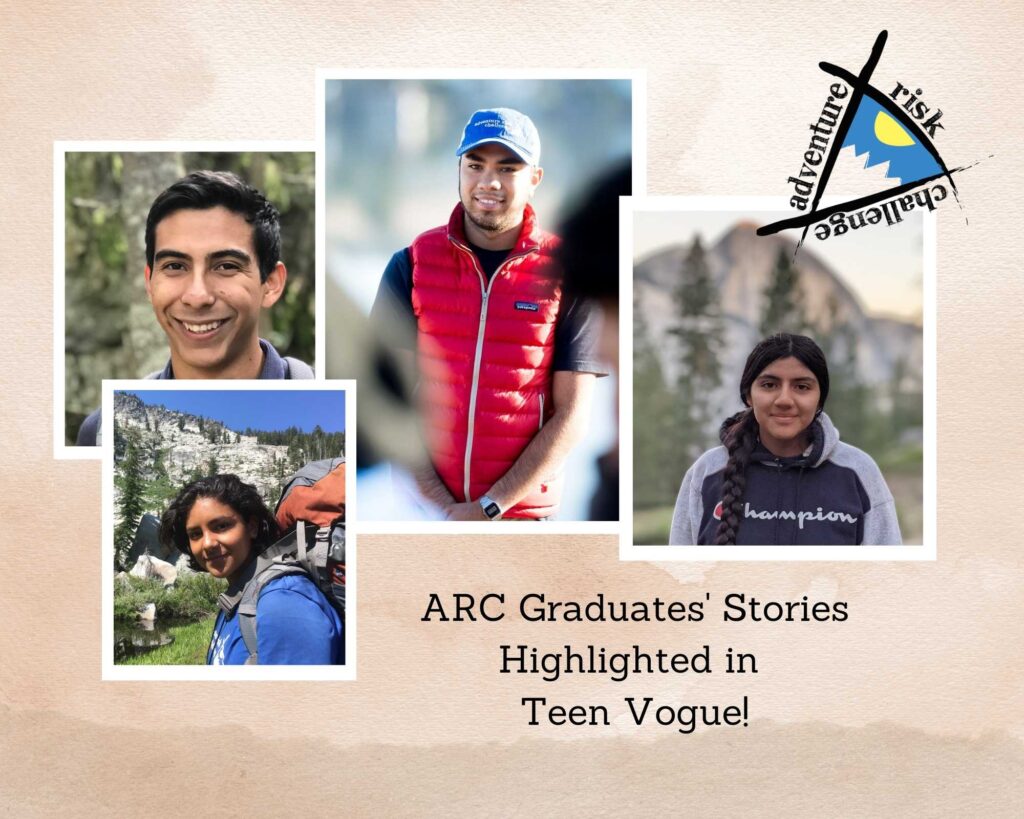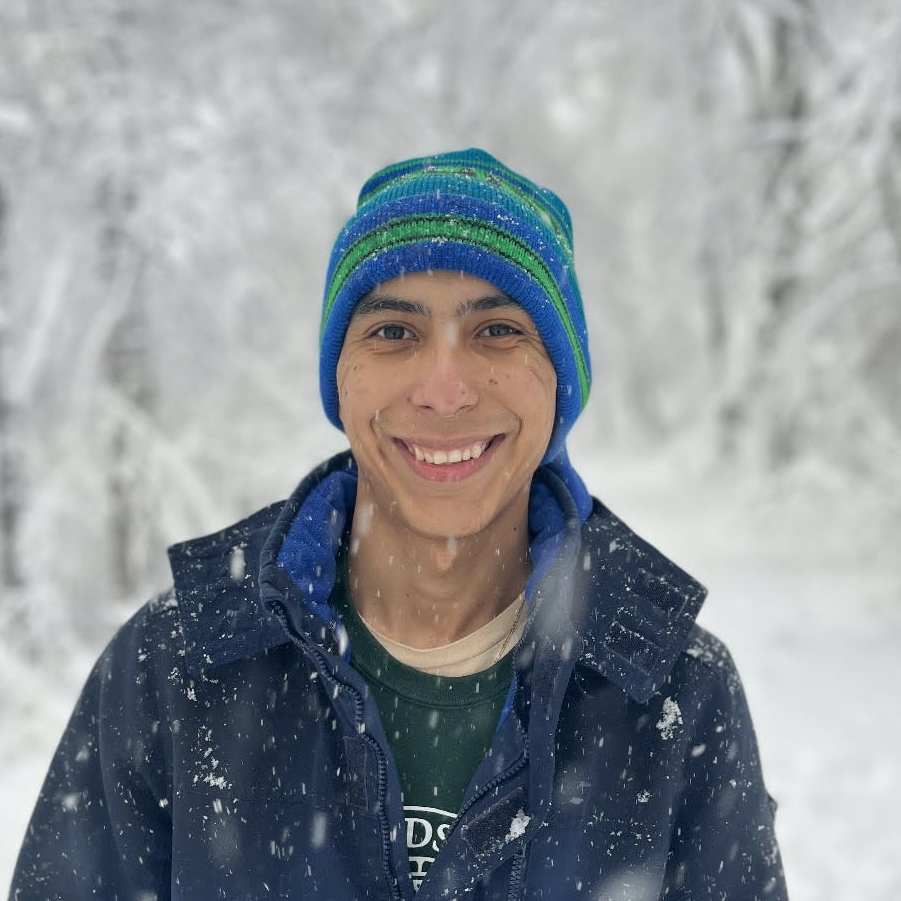| Four ARC graduates’ stories were highlighted in a Teen Vogue article in August! ARC graduates, Selena, Alexis, Iran, and Jesus, detail in the piece how their relationships to the outdoors have shifted over time. Teen Vogue is an award-winning publication with millions of online readers. We are so excited that the power of ARC participants’ stories is reaching a national audience. The article was written by Yi Ning Chiu. Prior to working as a journalist, Yi Ning was a mentor for Summer Search, a program partner of ARC since 2006. We interviewed Yi Ning to hear about what inspired her to write the article and what she learned from her conversations with ARC’s graduates. Read the interview below! |

| What inspired you to write the story about ARC’s alumni? I thought of ARC because I mentored some students who participated in the program [when previously working for an ARC partner, Summer Search]. My students had felt very connected to the other young people on their course and the ARC staff. When thinking about different stories that I could write, I thought it would be interesting to hear what’s happening now with the organization. A lot has gone on since my students participated in the program: national events have forced America to continue examining its history of racial inequity, and there have been major shifts in national and local politics. My general interest in writing is looking at how communities experience external strain and internal division: how do people maintain healthy connections to one another when their communities faces challenges? How do people cultivate hope for their futures even as they confront the real difficulties of our cultural moment? I was excited to dial down, focus on young people, and see how ARC – a community that I’ve previously observed to build strong, resilient relationships – was dealing with the divisions and strains in our society. What did you learn about ARC from the Summer Search students you mentored who completed the month-long ARC course? For the young people I worked with, their transition into the Bay Area was exceptionally challenging. Part of that had to do with language; they were really recent immigrants. The other piece had to do with how incredibly expensive and difficult life can be in the Bay Area. Every step of their adjustment was challenging: getting access to a check-up with a doctor or filling out the necessary forms for social services. One of the students I worked with was also helping a parent at her workplace, while learning the language and trying to connect to other young people. They were navigating multiple cultural and structural barriers. At ARC, they found community. I was amazed by how much the staff are willing and able to accommodate students. Right before they were scheduled to leave for the summer, they notified us that they had immigration hearings they needed to attend in the middle of their month-long ARC experience. ARC arranged to have them transported round-trip to the Bay Area and back to Yosemite. That was ARC going the extra mile, and I remember being so grateful for that. After their ARC summer, my students were willing to speak about themselves more and even articulate what they were experiencing before going on the trip, as a result of being open with their ARC teammates. Why did you choose to center the story on students’ voices? I have a personal value for highlighting people’s stories as much as possible without asserting my viewpoint. I think part of being a good storyteller in this setting required me to bear witness as accurately as I possibly could, and to allow my ideas to be challenged. Also, on a social and cultural level, it’s important to me that immigrant stories not be shoehorned into a specific political agenda. Stories about young people from immigrant backgrounds or about families that are not English speaking are often filtered and editorialized through a specific political view. I want to honor and do right by the people who are sharing with me and not filter out their voices. |

– Teen Vogue, August 18, 2022
| When you listened to the ARC alumni’s stories, what stood out to you? I was impressed by how much family history the ARC alumni were bringing to their stories. They weren’t just talking about their individual relationships to the outdoors. Their stories were about how their families shaped their early interactions with outdoor spaces and continued throughout their lives. That provided important context. When readers of Teen Vogue finish the piece, what do you want them to be left with? The hope for me is that readers understand that the people in the story are active agents in how they interact with the outdoors and stewarding the legacies of their families. I hope they understand that even as members of the ARC community may face challenges to getting outdoors, these individuals are complex and powerful people who are determining how their communities interact with the environment. What advice would you have for ARC students in their development as writers? Keep at it and keep practicing! It’s a craft that all of us are growing in over time. Challenge yourself to finish products you start. Try new things. Accept that your voice will not sound like anyone else’s, your interests aren’t exactly the same as anyone else’s, and the things that make you unique are probably the things you should take time to hone and develop. Pay attention to the world around you, dig in to the things that interest you, and be willing to learn. All these pieces will help grow you as a writer. Thank you to Yi Ning and Teen Vogue for focusing on and elevating youth voices! ARC’s vision is that youth become stewards of their own future, their communities, and the environment. The article is a reminder that this vision is not our future, but our present. |

